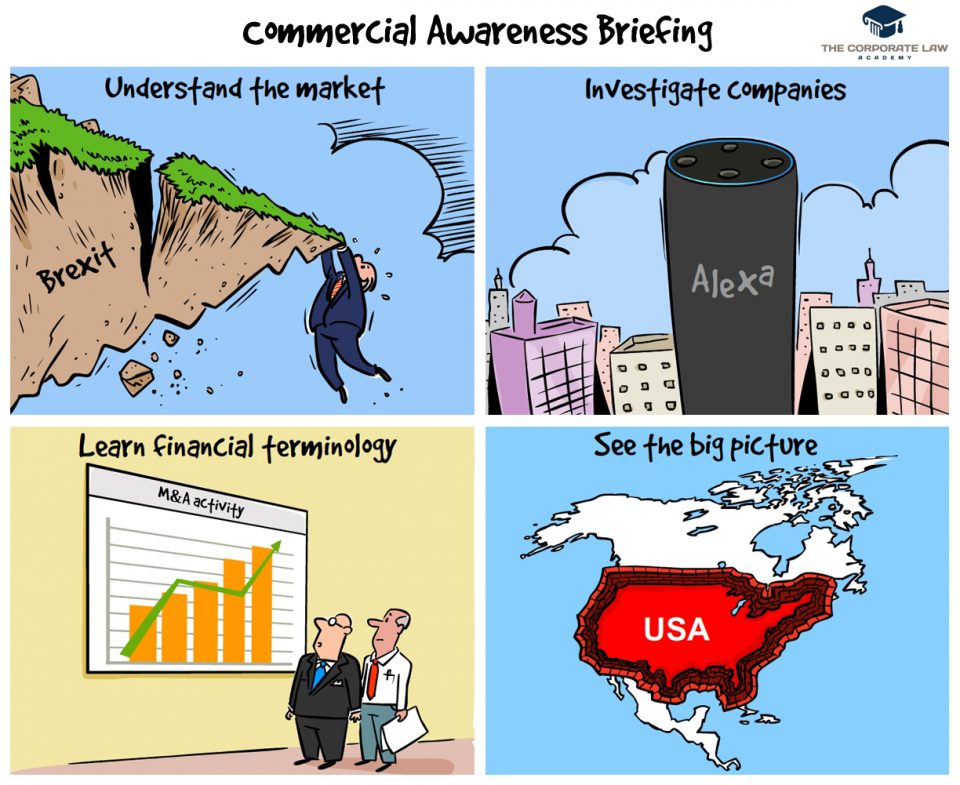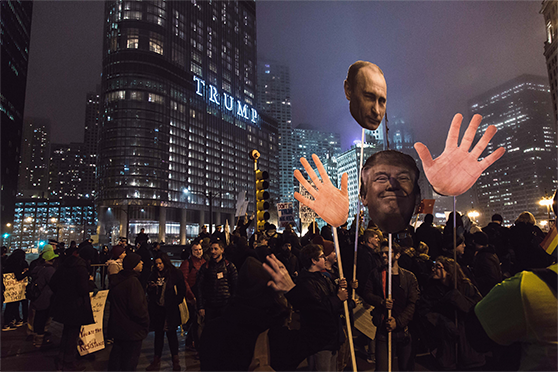Commercial Awareness Briefing – Part 2
Welcome to Part 2 of our commercial awareness summary for March and April 2018. If you missed our last email, you can access it here.
We are currently preparing mock case studies that mirror the written exercise at assessment centres. If you’d like a copy, please sign up to our forums as we’ll be circulating them over there very soon.
Have a good week!

Toys R Us
Goodbye to Toys R Us
- The story: Toys R Us is closing all of its UK and US stores. In the US, the company filed for bankruptcy, whilst in the UK, the company went into administration. Administrators of the UK arm were unable to find a buyer.
- Impact on law firms and clients: This story reflects two broader points. First, Toys R Us is one of a series of traditional businesses that have had to close in light of the rise of e-commerce platforms such as Amazon. Second, the fall of Toys R Us reflects the dangers of taking on too much debt. Toys R Us was bought by private equity firms in 2005 and they piled debt onto the business to expand internationally. Toys R Us could not keep up with the payments.Other UK retailers have suffered including Maplin Electronics, which went into administration after failing to secure a rescue deal. This is a busy time for restructuring and insolvency lawyers, many of whom predicted the collapse of the high street. Kirkland & Ellis advised Toys R Us in the US and UK, whilst an Eversheds team advised Maplin.
Russia
Putin’s landslide victory
- The story: Russia’s president won a landslide victory in the Russian elections with an estimated 75.6% of the vote. His campaign spokesman partly thanked the UK, linking the record voter turnout with the UK’s accusations against Russia. Britain recently expelled 23 diplomats and blamed Russia for the use of a nerve agent against a former double agent, Mr Skripal, something that Russia has vehemently denied.
- Impact on law firms and clients: In the short term, this political uncertainty is bad for the markets as companies slow down investment at times of unrest. If it escalates, the sanctions could further squeeze the Russian economy and affect both investment in and investment out the country. A few law firms are currently based in Russia including A&O and White & Case, and they may need to help restructure targeted Russian companies.

The other side of trade with Russia
- The story: Despite the political chaos between the UK and Russia, companies in both countries don’t seem to have had much problem trading with each other. Gazprom recently issued a $750m eurobond in London and the Russian government issued a $4bn bond in London.
- Impact on law firms and clients: In the public markets, there are 57 mainly-Russian companies listed on the London Stock Exchange, the most for any country outside Moscow. A number of MPs have also taken positions working for or acting on the boards of Russian companies. Lawyers are cautious about how the political climate will affect their Russian clients. Many think it will sort itself out, but some banks have limited Russian business and some investors are concerned about the impact on wealthy Russian clients. If they move this could impact legal work for private clients and Russian businesses. Fun fact – last year, the wife of the former deputy finance minister to Mr Putin paid £160,000 to play tennis with Boris Johnson!
Severe sanctions from the US
- The story: The US government announced its latest round of sanctions against Russia on Friday. They targeted prominent Russian billionaires, government or state-owned officials, and companies. This is the US’s toughest sanctions against Russia to date.
- Impact on law firms and clients: Many Russian companies have been hit hard. Shares in EN+ fell 22% and shares in Rusal fell 18%. Rusal later released a statement to say it is consulting with its legal advisers on the next steps. This is going to affect a range of companies that trade with Russian multinationals, for example, EN+, which is listed in London. Depending on how long it lasts, companies may be advised to consider finding alternative suppliers.
M&A
Global dealmaking passed $1 trillion at fastest pace
- The story: In a signal of how well M&A is doing globally, the total value of deals passed $1 trillion in record time. In the UK and Japan, M&A dealmaking volume is double the rate of last year and in Germany, it is four times higher. Value is also up a lot in a sign that private equity firms are confident to do bigger deals.
- Impact on law firms and clients: M&A and private equity teams are going to be really busy as it looks to reach record levels this year. Law firms may bulk up their teams by external hires or make more partner promotions within corporate.
M&A activity continues to break records
- The story: Despite tariffs, Brexit, protectionism and global political concerns, M&A continues at a record rate up 67% from the same quarter last year.
- Impact on law firms and clients: There has also been a large increase in big transactions as companies move to beat the disruption of technology. European deal volumes have almost doubled from last year, especially in private equity. For example, Carlyle recently acquired Akzo Nobel’s chemical business in one of the largest European PE deals in recent years. For that deal, Latham & Watkins is providing the corporate advice in London and finance advice in the US, a sign of the benefits of having a strong presence in both jurisdictions to secure places on the biggest deals. At the same time, Chinese overseas dealmaking has slowed to the lowest since 2005, a clear sign of the consequence of Trump’s trade policies on M&A.
The big hostile takeover
- The story: Investment firm, Melrose Industries, has been in a battle for the last two months to try to buy GKN, one of Britain’s oldest engineering companies. This is despite sustained criticism by many politicians, customers and trustees. Recently Airbus, its biggest customer, said it would be difficult to work with the company if it was acquired. Airbus noted that they want to work with a supplier that invests in the UK for the long term – not one that is looking to break up the company and sell. 16 MPs have also written to the business secretary asking the government to block it on grounds of national security.
- Impact on law firms and clients: The government can block an attempted acquisition under the 2002 Enterprise Act on public interest grounds. This is something the US government did when Trump stopped the attempted acquisition of Qualcomm.
Update to Melrose bid for GKN
- The story: Elliot Advisers, the UK arm of a hedge fund that owns over 3.8% of GKN said it plans to vote in favour of Melrose’s offer to buy GKN for £8bn. They called for other shareholders to do the same. David Cumming, chief investment officer at Aviva, has also backed the bid. There are four days left before the shareholders have to decide.
- Impact on law firms and clients: This has been called the most hostile takeover in decades. Whilst, Melrose now has public support of roughly 10% of GKN’s shareholders, many have called on the regulators to intervene and asked the government to legislate to protect British businesses. This comes as Unilever moved its headquarters from London to Rotterdam because of its tougher rules against hostile takeovers.
Melrose buys GKN
- The story: The vote took place yesterday and a majority of GKN shareholders agreed to sell their shares to Melrose in a £7.9bn cash and shares offer. This was helped by the fact that a substantial minority of the shares were held by hedge funds.
- Impact on law firms and clients: The close vote (52.43%) reflects the uncertainty of buying long established UK companies. But the battle isn’t over yet, the business secretary made Melrose agree to the government’s right to veto the sale. It’s now up to the government to determine whether there are public interest concerns. This agreement is something that has become more commonplace since the Kraft-Cadbury deal but the government has never been so public in its involvement. Meanwhile, some have called for a review of UK takeover laws over concerns that existing legislation does not adequately protect longstanding British businesses.
Trump blocked the biggest even technology deal
- The story: Trump has blocked Broadcom’s attempted $142bn acquisition of Qualcomm. Both are chipmakers and Apple is a key client of Broadcom. This is the first time a president has blocked a deal over national security fears. Trump’s administration reportedly feared that the acquisition would pave the way for China to lead the growth of 5G wireless technology.
- Impact on law firms and clients: This was a hostile takeover and would have made a lot of money for legal advisers in M&A and finance. Broadcom’s advisers included Latham & Watkins and Wachtell Lipton Rosen & Katz, whilst Paul Weiss, DLA Piper and Allen & Overy were favoured to act for Qualcomm. It comes as regulators are increasingly worried about foreign takeovers by Chinese companies, which may cause law firms to see a fall in outbound Chinese M&A deals.

Trump’s tariffs
- The story: Trump’s advisers originally came up with $30 billion of tariffs to target China but Trump ordered them to double it – so now there is going to be $60 billion worth of annual tariffs. China said that whilst don’t want a trade war, they will fight back and they’ve prepared retaliatory tariffs on 128 US products. China has faced internal pressure to go even tougher and target US soybeans, aircraft and cars but it remains to be seen what their next steps are.
- Impact on law firms and clients: Japan was seen as the first tragedy of the US-China trade war as Japanese stocks fell and the yen rose. Trump decided not to exempt Japan from tariffs aimed at China, which could significantly damage profits as many Japanese companies are dependent on exports. Stocks have also been affected: US stocks had their worst week in more than two years and European shares fell sharply. The news particularly hit banks and companies that do a lot of global trade. Deutsche Bank hit their lowest level since late 2016 and Boeing has seen shares fall 10% as the company is heavily reliant on supply chains in China. Lawyers may advise companies to slow down on investments and consider their supply routes between the US and China.
Trump’s escalating trade war
- The story: In response to alleged intellectual property theft, the US government has announced plans for a 25% tariff on 1,333 Chinese products. The products include robots, vaccines, electric cars and military weapons. It also features components that US companies may use. China responded quickly with a 25% tariff on 106 products, which includes cars, soybeans and some aeroplanes.
- Impact on law firms and clients: This is going to impact many US manufacturers and US-China trade relations. The growing trade war hurts companies looking to invest in the US and China, and companies that rely on international trade. Law firms have already found it hard to operate in China and they may have to reconsider their expansion plans if this continues to escalate.
And another retaliation…
- The story: It didn’t take long for Donald Trump to respond to the recent Chinese tariffs. He has called for tariffs on an additional $100bn of Chinese imports.
- Impact on law firms and clients: It’s clear that Trump won’t be the one backing down from this escalating trade war. The US, EU and Japan have also joined the US in a case against China’s alleged intellectual property theft at the World Trade Organisation. In many ways, the integrity of the WTO is at stake, especially if other nations decide not to follow international trading standards. Meanwhile, financial institutions have had different responses. BNP Paribas noted that there are risks to the Chinese banking system and little to benefit from a trade war. Blackrock said it’s an opportunity for negotiations with China. Whilst UBS warned clients about the risk to global growth.
Trump reconsidering trade agreement
- The story: Trump is said to be looking to rejoin the Trans-Pacific Partnership provided he sees a better deal for the US than before. Trump originally withdrew from the TPP after coming into power.
- Impact on law firms and clients: The TPP is an agreement between 12 countries to cut tariffs and create rules for international trading. The aim is to stop China from setting trade practices across the world by creating uniform rules in many areas like intellectual property, patents, employment and the environment. It’ll also bring new opportunities for businesses and may force some countries to get their laws up to speed. This could mean more legal certainty for businesses operating in those jurisdictions. It could also mean more avenues for litigation teams because companies can sue governments for laws that affect them.
Gender pay reports
- The story: More firms have now submitted their gender pay gap figures under government requirements. These require employers with over 250 employees to publish gender pay. So far, of the reported companies, 3 out of 4 pay men more than women, with some of the biggest gaps are in financial services. But some have criticised the governments reporting measures because it overlooks a lot of factors that determine pay.
- Impact on law firms and clients: The public reporting has forced companies to come to terms with their gender pay gaps. For example, EY’s graduate intake is at 58%. But the problems arise going up the ladder – 80% of EY’s partners are male. Employers may be worried about the impact on their brand. Easyjet, for example, had a 45.5% gap but compensated by presenting the data early and explaining clearly what they were doing to improve, such as clear targets. Law firms have also reported their figures but some have called the picture distorted because they don’t have to reveal partnership data – where the gap is likely to be the highest. Some law firms voluntarily included partnership data including Clifford Chance, reporting a 66.3% gap. The firm also called out others to do the same. This prompted Linklaters, which originally reported a figure of 23% for non-partners, to revise their figures to 60.3% when including partners. Comparing the figures for non-partners, out of the magic circle, Linklaters has the highest mean hourly pay gap and Freshfields has the lowest (including one of the lowest out of all the reported firms).
Stock Market
Spotify flotation
- The story: Spotify listed on the New York Stock Exchange and was valued at $26.5bn. The company didn’t go for a normal flotation in a sign of the uncertainty around tech stocks at the moment. Instead of hiring a bank and going through an extensive IPO process, Spotify went direct to the market to sell existing shares.
- Impact on law firms and clients: The recent tech sell-off in the stock market has shaken a lot of investors and caused prices to fluctuate a lot in recent weeks. This may reflect a broader concern about IPOs and companies may put flotations on hold over fears about the current political climate. It also shows the alternative means to access the equity capital markets. Spotify’s route to the market, a direct listing, is seen as a test case for future companies.

Avast aiming for one of the largest tech flotations on the London Stock Exchange
- The story: Avast, one of the world’s largest cyber security companies operating direct to consumer, is planning to raise $200m in an IPO. Existing shareholders will be selling shares in the company, which is backed by the private equity firm CVC Partners.
- Impact on law firms and clients: Avast chose to list in London rather than New York in a sign of the competitiveness of the LSE despite concerns over Brexit. It also comes as the cyber security market is expected to grow rapidly over the next few years as companies and law firms are trying to build systems to better protect themselves from hackers. The number of IPOs backed by private equity firms is also expected to grow a lot this year.
US economy
Inflation and wage risks to the US economy
- The story: The CEO of JP Morgan released his annual letter this week and commented on the risks of the US economy overheating because of higher inflation and wages. He suggested that the Federal Reserve may have to take ‘drastic action’ by raising interest rates quicker than anticipated.
- Impact on law firms and clients: This one is a mixed bag. The suggestions that there are dangers in the US economy comes from the fact that it is growing well, but potentially too fast. Whilst M&A and banking will be busy, firms need to prepare for the risks that the Federal Reserve does step in and raise interest rates. That’s a problem if many companies are borrowing to finance their activities whilst the interest rates are low.
US investment banks earnings report
- The story: JPMorgan, Wells Fargo and Citigroup are releasing their earnings for the first-quarter today. This will give an idea of the strength of the lending market, the impact of US volatility and how lighter regulations will impact their balance sheets.
- Impact on law firms and clients: It’s hoped that bank earnings will help to stabilise the market as many investors are concerned about a trade war, the Middle East and US politics. If it doesn’t rally the market, there are concerns about the future of the US economy and its ability to handle this uncertainty.
